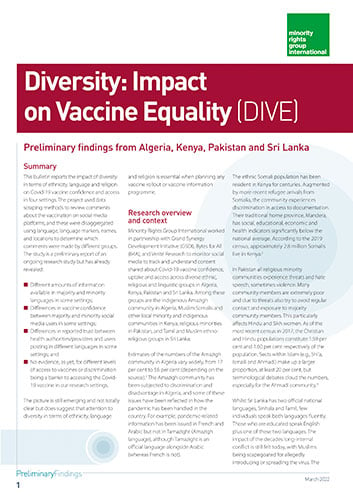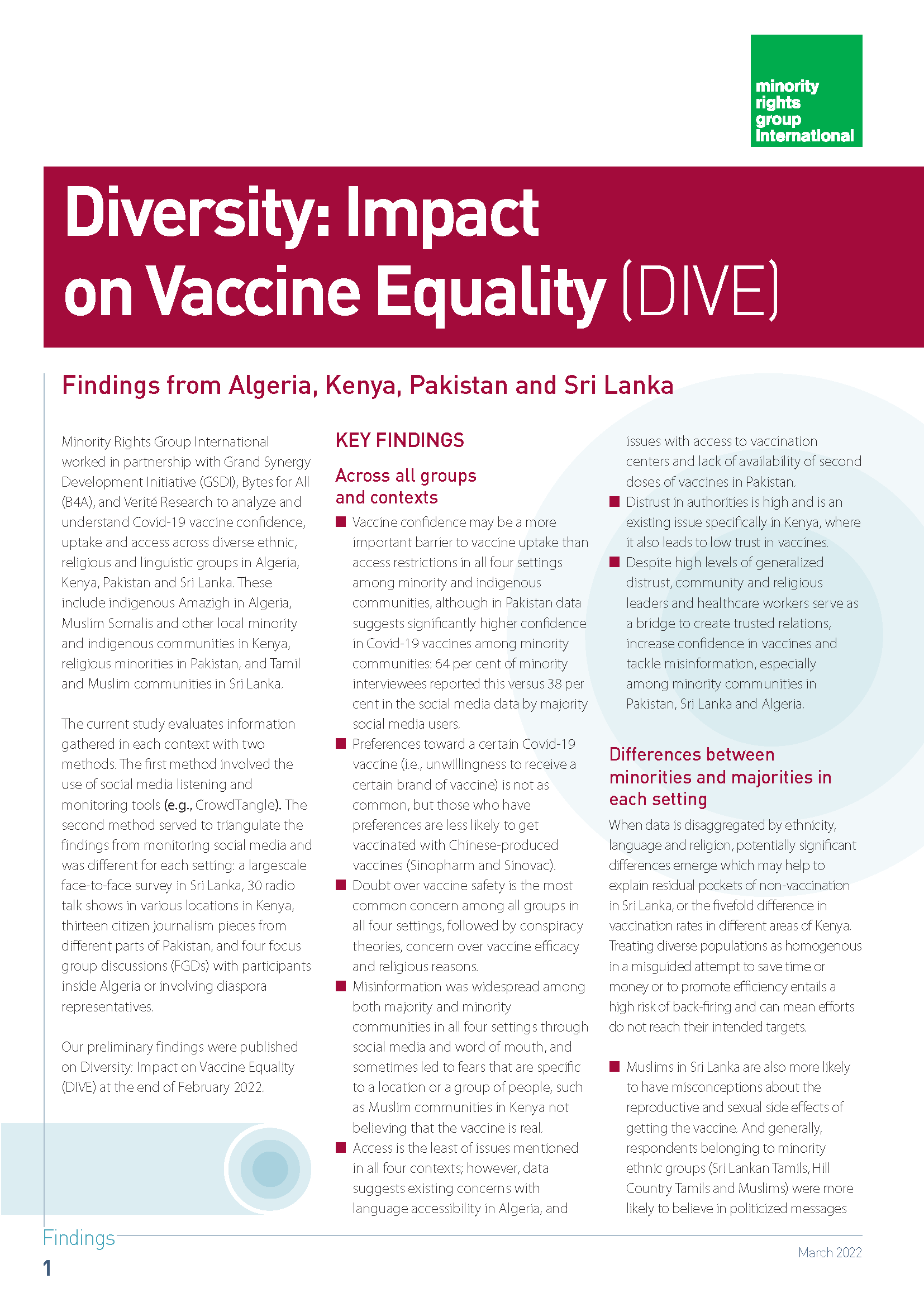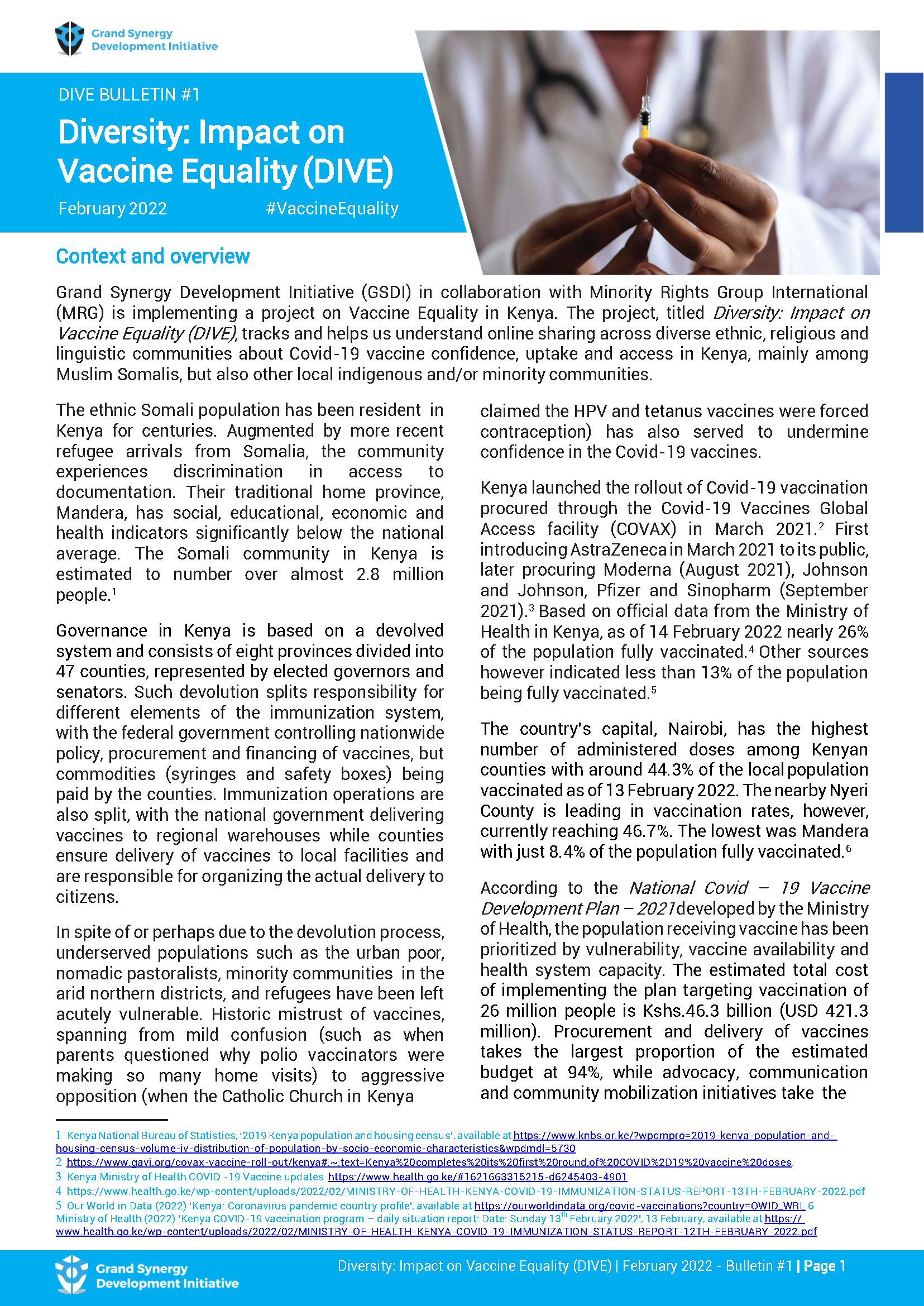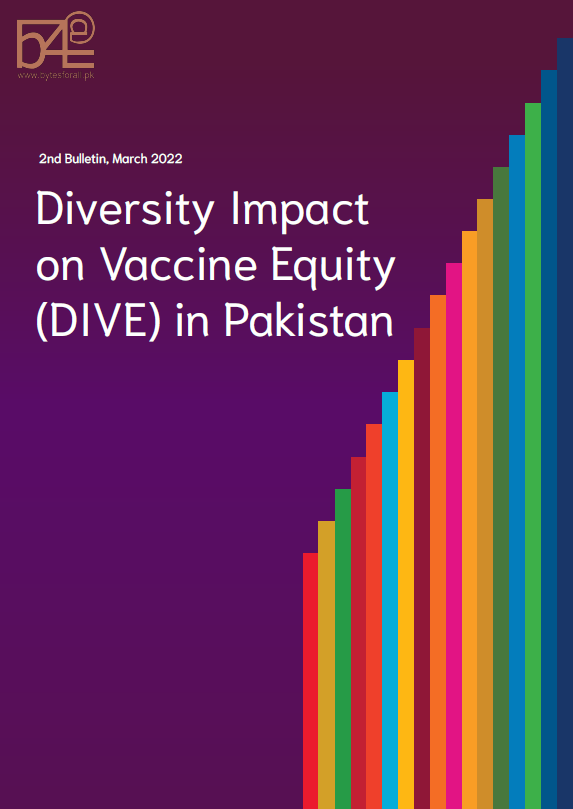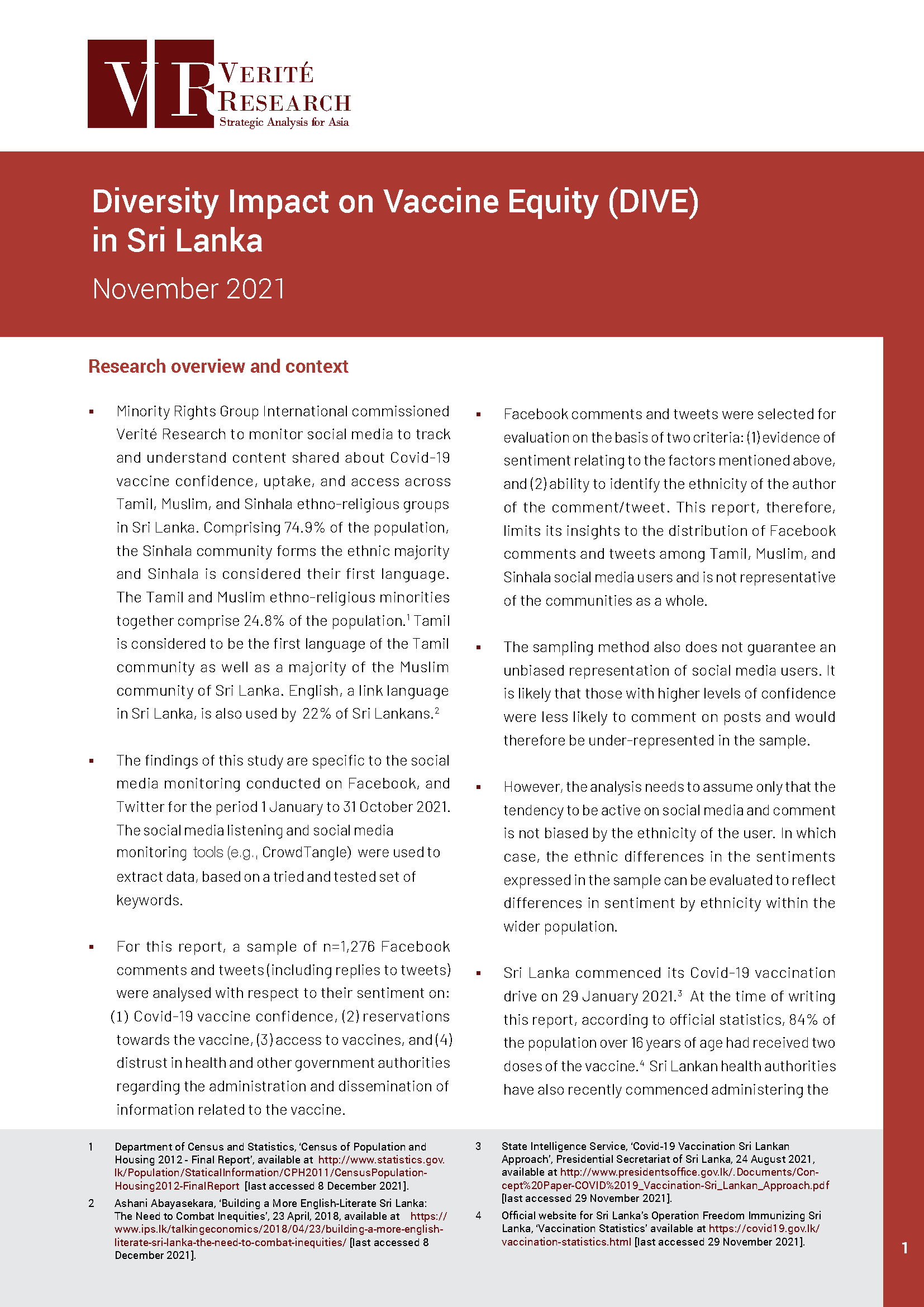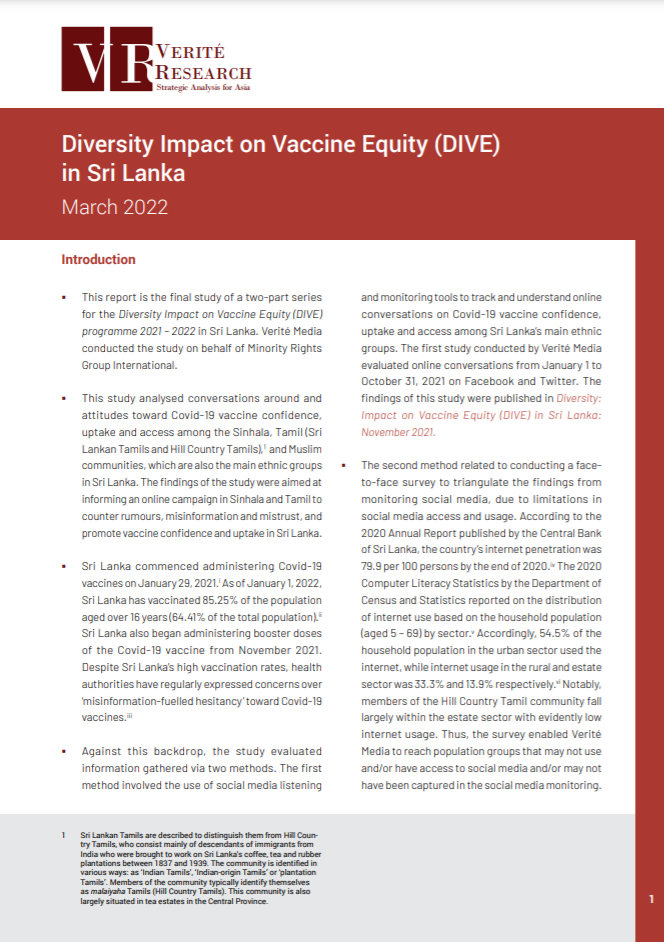
Diversity: Impact on Vaccine Equality (DIVE)
Duration: 23 September 2021 – 15 March 2022
Country: Algeria, Kenya, Pakistan, Sri Lanka
Communities: Indigenous Tamazight speakers in Algeria, Muslim Somalis and other local indigenous communities in Kenya, religious minorities in Pakistan, and Tamil and Muslim ethno-religious groups in Sri Lanka
What is this programme about?
This project will use a social media listening software tool and the social media monitoring platform CrowdTangle to track and understand online sharing across diverse ethnic, religious and linguistic communities about Covid-19 vaccine confidence, uptake and access in Algeria, Kenya, Pakistan and Sri Lanka. Our target groups are politically, socially and economically marginalized members and other than Pakistan, living in remote and rural locations.
We are working on two complementary axes:
- Social media monitoring will search for sentiments relating to frustration concerning lack of supply as well as expressed grievances concerning disparities in supply or selection of vaccines.
- Based on the initial findings, each research team will publish two bulletins and generate locally relevant social media materials in minority languages to address rumours, disinformation, mistrust and/or problems in access or supply of vaccinations.
What are we aiming to achieve?
We aim to identify variations in vaccine confidence and access between minority and majority communities which can be further used to address confidence sappers and differential allocation of resources for vaccination provision.
We will design and produce social (and, where relevant, traditional) media materials according to the specific context in each country that either address factors impacting vaccine confidence within minority communities or calls for a levelling up of vaccination service provision where that has been shown to be a block in terms of uptake rather than confidence.
Through the bulletins and social media content, we want to draw the attention of national and international decision makers to factor-in diverse communities that are impacting vaccine confidence and, to some extent, we will also model how these can be addressed.
Through our research, we will significantly contribute to the sum of knowledge about the impacts of religious, linguistic and ethnic diversity on vaccine confidence, trust in health and other authorities and the differential impact of low confidence versus gaps in service provision on vaccine uptake in marginalized communities.
Our publications
-
Diversity Impact on Vaccine Equity in Algeria
-
Diversity Impact on Vaccine Equity in Algeria
-
Diversity: Impact on Vaccine Equity (DIVE)
-
Diversity: Impact on Vaccine Equity (DIVE)
-
Diversity Impact on Vaccine Equity in Kenya
-
Diversity Impact on Vaccine Equity in Kenya
-
Diversity Impact on Vaccine Equity (DIVE) in Pakistan
-
Diversity Impact on Vaccine Equity in Pakistan
-
Diversity Impact on Vaccine Equity in Sri Lanka
-
Diversity Impact on Vaccine Equity in Sri Lanka
What is the context?
Ethnic, religious and linguistic minorities and indigenous communities do not benefit equally from vaccination programmes in general. Disaggregated data is scarce but what exists suggests that marginalization significantly increases the risks of missing vaccinations as well as other similar preventative health care services. Religious and other beliefs can also impact on vaccine confidence. Where states primarily issue information in one or two languages, minorities’ understanding of the issues and access to information to counter rumours or misinformation may be at risk. However, it is also the case that health services to remote and minority areas are weaker and access to routine services may not be available to all.
- Algeria: The Amazigh are an indigenous community who speak their own language and who experience discrimination and disadvantage in Algeria. Pandemic-related information has been issued in French and Arabic but not in Tamazight, although Tamazight is an official language alongside Arabic (and not French).
- Kenya: The ethnic Somali population in Kenya, primarily living in the Mandera province, has social, educational, economic and health indicators significantly below the national average. In the country, vaccination uptake is still at 5.8 per cent, rumours about unfair selections as well as ill effects of the vaccination are common.
- Pakistan: All religious minority communities in Pakistan experience threats and hate speech, sometimes violence. Many community members are extremely poor and due to threats also try to avoid regular contact and exposure to majority community members. This particularly impacts Hindu and Sikh women.
- Sri Lanka: Whilst the country has two official national languages, Sinhala and Tamil, not many speak both languages fluently. Those who are educated speak English plus one other language. Impact of the long internal conflicts are still felt today, with Muslims being scapegoated for introducing or spreading the virus.
Who are our partners?
- Verité Research in Sri Lanka
- Bytes 4 All (B4A) in Pakistan
- Grand Synergy Development Initiative (GSDI) in Kenya
Who is funding this programme?
The project is funded by the Global Impact – VCF grant.
—
Photo: Sri Lankan Muslims tie white ribbons on a fence at a cemetery during a protest against forcible cremation of Covid-19 victims in Colombo, Sri Lanka. 23 December 2020. Credit: EPA-EFE/Chamila Karunarathne.


